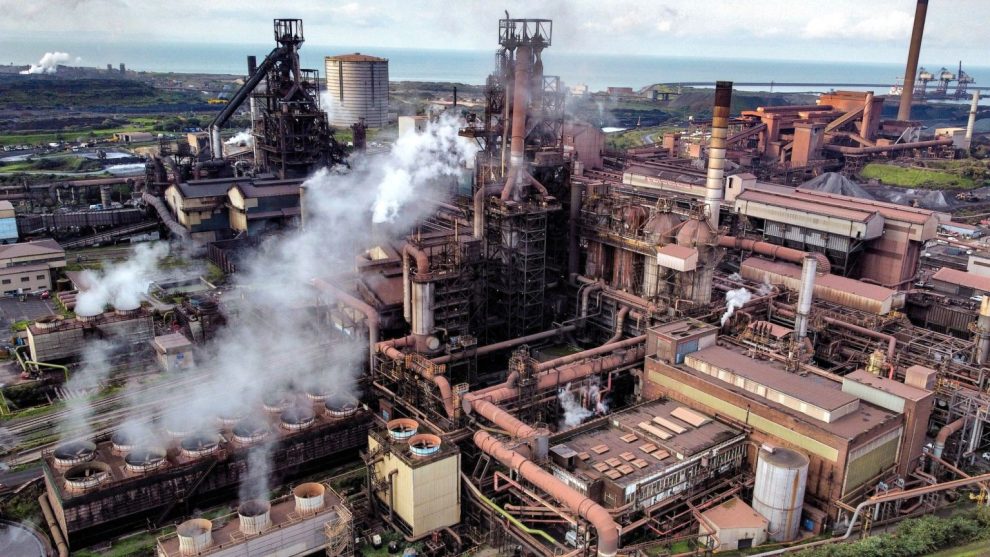Welsh secretary denies UK Government paid to reduce jobs in Tata deal – Herald.Wales

David T C Davies, the Wales Secretary, has denied that the UK Government “paid money to put people out of work” following Tata’s decision to close blast furnaces at Port Talbot steelworks.
Mr Davies made these comments during an urgent session in Westminster about Tata ending redundancy consultations at Port Talbot steelworks. He clarified, “The consultation process has not concluded at the national or local level; it is still ongoing. The company plans to start local consultations with affected staff. This is a worrying time for Tata’s workforce and the wider community.”
He added, “Tata Steel employs over 8,000 people, including those at Port Talbot. Without the agreement we reached, thousands of jobs in the supply chain would be at risk. The path to transformation will be challenging, but the funding secured has preserved 5,000 jobs within the company. We have not paid to reduce jobs; rather, we have invested significantly to save 5,000 positions. Additionally, we aim to modernise production to ensure steelmaking in South Wales endures for generations.”
‘Devastating News’
The announcement of job losses was described by shadow Wales secretary Jo Stevens as “devastating news for workers in Port Talbot with economic repercussions that could impact South Wales for decades.” Speaking in the Commons, Stevens criticised the government’s expenditure of £500 million of taxpayers’ money for the loss of 3,000 jobs, labelling it their responsibility.
Stevens continued, “The loss of sovereign steelmaking poses a significant threat to our economy and security. It hinders our ability to advance projects like floating offshore wind, which are crucial for reducing energy costs, ensuring energy security, and creating future employment opportunities.”
Addressing the imminent closure of blast furnace number five, she asked, “What assessment has the Government made of the impact of this closure on job losses at the plant and throughout the Welsh supply chain? With ongoing talks between unions and Tata, will the Secretary of State support an agreement to avoid compulsory redundancies?”
Union Appeals Rejected
Last week, Tata confirmed the shutdown of blast furnaces at its Port Talbot plant, resulting in thousands of job losses despite a union plea to reconsider.
The company cited seven months of negotiations with unions and affirmed its commitment to a £1.25 billion investment for an electric arc furnace at Port Talbot while phasing out existing heavy assets in the coming months.
Unions and Labour have condemned the decision, warning of severe consequences for the industry and Welsh economy.
Tata countered that their proposal represented the largest steel industry investment in decades, safeguarding jobs and ensuring future customer supplies.
Amidst strike votes by union members, Tata has promised generous severance packages and community support initiatives, with a voluntary redundancy programme scheduled for May.
Tata’s CEO, T V Narendran, emphasised, “Our proposal ensures the long-term viability of the business, contrary to the unions’ unsustainable plan with high operational and safety risks.”
He pledged Tata’s commitment to establishing a low-CO2 steel operation at the heart of a green industrial ecosystem, securing steel supplies and economic opportunities for future generations in Wales and beyond.
Related
Llyods Recruiting Engineers In India After Slashing Jobs In UK
Lloyds Banking Group is planning to hire hundreds of engineers in India as the company plans to shift its employment opportunit
Major new funding for music acts that supercharged careers of…
£1.6m Music Export Growth Scheme to support 58 independent UK artists to tour the world Funding will boost UK’s creative industries – a key growth se
Well-loved restaurant chain to close 8 venues across UK as…
A BELOVED restaurant chain has announced it will close eight venues across the UK, scrapping 158 jobs in the process.Owners are pointing the finger at Labour's
US adds 151,000 jobs in February as unemployment rate ticks…
The latest figures published by the US Bureau of Labor Statistics today (7 March) came in below market expectations, with economists polled by














